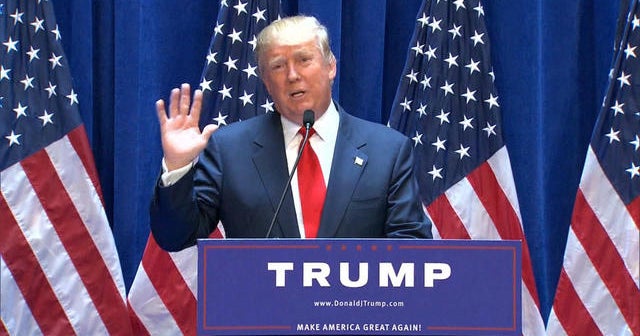The great divide: Trump and the press
The great divide: Trump and the press

The media wars surrounding coverage of President Donald Trump have been getting louder by the day – and Americans have become more polarized than ever. Senior contributor Ted Koppel talks with commentator Pat Buchanan and Harvard professor Yochai Benkler about the battle between presidents and the press, what news Americans are choosing to consume, “fake” news, and the media war for hearts and minds.
Read the full article on CBS US
Truth Analysis
Analysis Summary:
The article accurately reflects the increasing polarization in America, particularly concerning media coverage of Donald Trump. The claim about heightened polarization is supported by multiple sources. However, the framing of the "battle" and the use of terms like "fake news" suggest a moderate bias, as these terms are often loaded and can reflect a particular viewpoint.
Detailed Analysis:
- Claim:** The media wars surrounding coverage of President Donald Trump have been getting louder by the day - and Americans have become more polarized than ever.
- Verification Source #1: Supports the claim that America's political and cultural divisions have become more polarized.
- Verification Source #2: Supports the claim of divided and toxic politics from Obama to Trump.
- Verification Source #3: Supports the idea of a "great divide" in America.
- Verification Source #4: Supports the idea that Trump has made immigration central to his campaign, which contributes to the divide.
- Verification Source #5: Supports the idea of a political divide.
- Claim:** Senior contributor Ted Koppel talks with commentator Pat Buchanan and Harvard professor Yochai Benkler about the battle between presidents and the press, what news Americans are choosing to consume, "fake" news, and the media war for hearts and minds.
- This claim is descriptive of the video's content. While the provided snippets don't explicitly confirm the specific individuals interviewed, the title of Verification Source #1 ("The great divide: The media war over Trump - CBS News") suggests this is accurate.
- Claim:** "fake" news
- The use of the term "fake" news is a loaded term that is often used to discredit news sources. Verification Source #2 mentions "fake news" in the context of Russian interference, which adds context but doesn't necessarily validate the term's neutral usage.
Supporting Evidence/Contradictions:
- Verification Source #1: "America's political and cultural divisions have become even more polarized in the current media landscape." This directly supports the claim of increased polarization.
- Verification Source #2: "divided and toxic politics — from President Obama to President Trump's terms ... How Russian “Fake News” Hardened America's Divide." This supports the claim of a divide and mentions "fake news" as a contributing factor.
- Verification Source #3: "'It's a 50-50 nation': Chris Wallace on Fox News, Trump and America's great divide." This supports the idea of a significant divide in America.
- Verification Source #4: "The operation has the backing of former president Donald Trump, who has again made immigration central to his election campaign." This supports the idea that Trump's actions contribute to the divide.
- Verification Source #5: "Barring the unforeseen, Donald Trump will win in many counties, testifying to a political divide we see in many parts of the world." This supports the idea of a political divide.
- The term "fake news" is a point of potential bias. While Verification Source #2 mentions it, the term itself is often used to delegitimize news sources and can reflect a particular political viewpoint.
